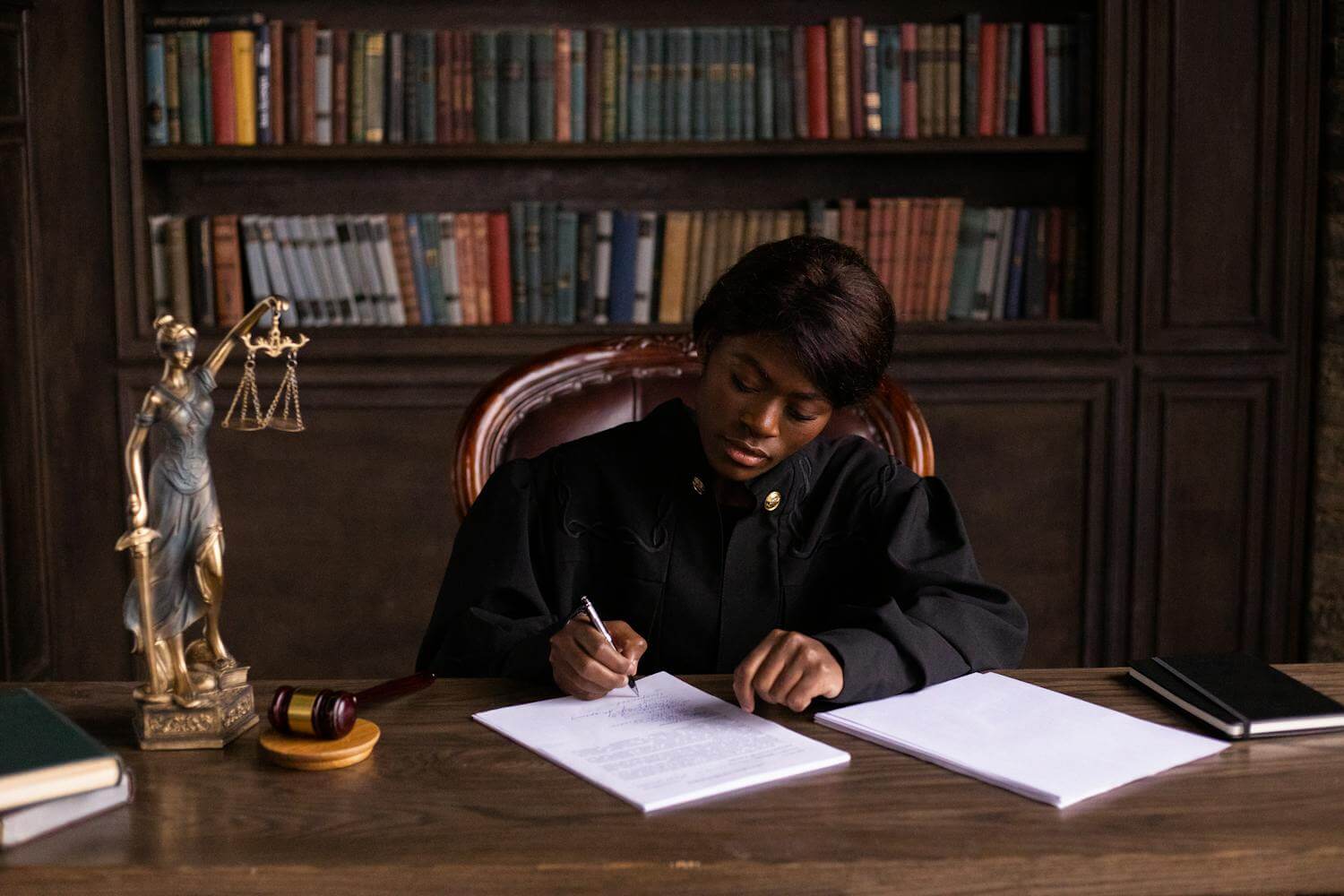A divorce court hearing is a legal proceeding where a judge reviews the application for divorce, ensures all legal requirements are met, and issues a divorce order.
A divorce court hearing typically lasts around 10 to 20 minutes. This is dependent on the case’s complexity, and whether both parties have agreed to the divorce.
Factors Influencing the Duration of a Divorce Hearing
Several factors can affect the length of a divorce hearing, including:
- Complexity of the Case: More complex cases involving disputes over assets, custody, or support may take longer. Detailed arguments and additional evidence can further extend the duration.
- Court Schedule: The availability of the court and the judge’s schedule can influence the duration. Busy court calendars may result in delays and longer wait times.
- Representation: Whether both parties have legal representation can impact the efficiency of the hearing. Skilled lawyers specialising in family law can expedite the process through effective and efficient presentation and negotiation.
- Preparation: Adequate preparation and documentation can streamline the process. Incomplete or disorganised submissions can lead to adjournments and additional hearings.
Key Takeaway: The complexity of the case and quality of preparation will significantly impact the duration of the divorce hearing.
Also read: Mutual Divorce Application
Process of a Divorce Court Hearing
During a divorce court hearing, the following steps are generally followed:
- Calling the Case: The court clerk calls the case, and both parties, along with their legal representatives, approach the bench.
- Presentation of the Case: The applicant or their lawyer presents the case, providing all necessary documentation. A clear and concise presentation helps to avoid unnecessary delays.
- Review by the Judge: The judge reviews the documents, ensuring all legal requirements are satisfied. A thorough review by the judge ensures compliance with legal standards.
- Questions and Clarifications: The judge may ask questions to clarify any points or issues. Addressing these queries promptly can prevent further complications.
- Issuance of Divorce Order: If everything is in order, the judge issues the divorce order. The issuance of the order marks the conclusion of the legal process.
Key Takeaway: A structured process helps ensure efficient and straightforward divorce hearings.
Need a Lawyer?
Preparing for a Divorce Court Hearing
Understanding the process of a divorce hearing, preparing thoroughly and being aware of what to expect can significantly influence the efficiency and duration of the hearing.
Communicate with your lawyer to understand the process and anticipate any questions or issues that may arise.
Key Takeaway: Adequate preparation ensures a swift and efficient divorce court hearing. Divorce hearings are generally brief and efficient, with thorough preparation playing a pivotal role in their duration.
What to Expect at the Hearing
Expect the hearing to be formal yet brief. Dress appropriately and be punctual. Both parties will need to confirm their identities and agree to the terms of the divorce. If there are any disputes, the judge will address them accordingly.
Key Takeaway: Being prepared and understanding the formal nature of the hearing can help manage expectations.
Also read: Divorce Hearing in Absence: Helpful 7-Point Guide
Post-Hearing Procedures
After the hearing, the court will issue a divorce order, which becomes final one month and one day after the hearing date.
Both parties will receive a copy of the order, concluding the legal process of divorce.
Key Takeaway: The divorce order finalises the legal proceedings, effective one month and one-day post-hearing.

